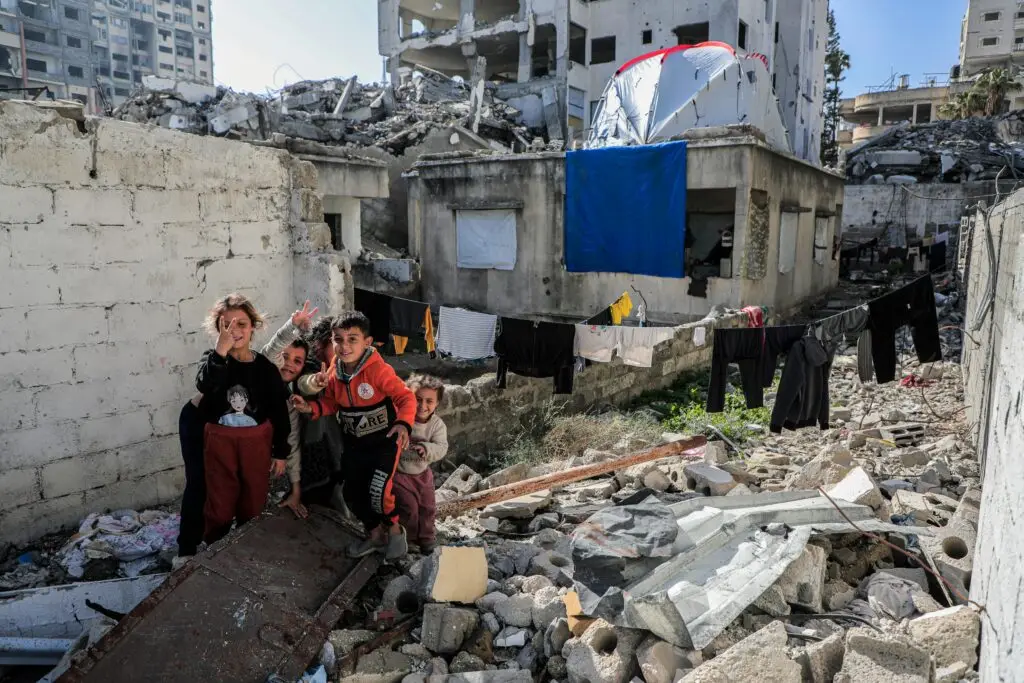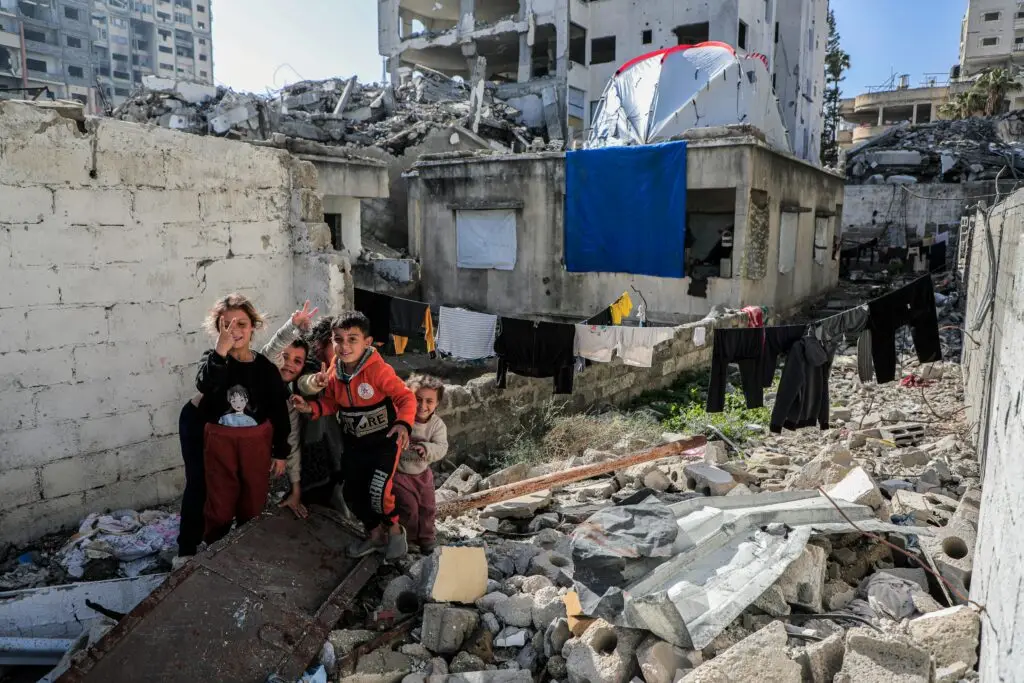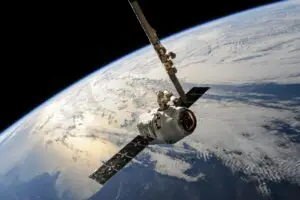
Meta Description:
The International Court of Justice (ICJ) has ruled that Israel must permit the United Nations and its agencies to deliver humanitarian aid into Gaza, reaffirming international obligations to protect Palestinian civilians amid the ongoing conflict.

Introduction: A Defining Ruling from the World’s Highest Court
In a significant advisory opinion that carries both moral and diplomatic weight, the International Court of Justice (ICJ) — the United Nations’ highest judicial body — has declared that Israel is legally obliged to facilitate the delivery of humanitarian aid to the Gaza Strip.
The court’s finding emphasizes Israel’s responsibility under international law to ensure that basic human needs of Palestinian civilians are met. This ruling comes amid a worsening humanitarian crisis in Gaza, where millions have been affected by food shortages, displacement, and infrastructure destruction following years of conflict and blockade.
Understanding the ICJ’s Advisory Opinion
What the Ruling Means
The ICJ’s advisory opinion clarifies that Israel must not obstruct humanitarian assistance provided by the United Nations and its agencies, including the UN Relief and Works Agency (UNRWA).
The court stated that Israel is obligated to enable unhindered access for UN aid deliveries, ensuring essentials such as food, medicine, and water reach the 2.1 million residents of Gaza.
Although non-binding, ICJ advisory opinions carry significant moral authority and influence diplomatic relations, especially when they address violations of international humanitarian law.
The Context Behind the Request
The advisory opinion was requested by the UN General Assembly in December, following concerns that Israel’s restrictions and new laws were preventing international organizations from operating effectively in Gaza and the occupied West Bank.
Israel’s parliament had passed legislation banning UNRWA operations within its territory and prohibiting direct engagement between Israeli officials and the agency — moves widely criticized by the international community as violations of humanitarian principles.
Israel’s Response: Rejecting the ICJ’s Findings
Claims of Political Bias
In response, Israel dismissed the ICJ’s opinion as a “political statement” rather than a legal one. Officials from the Israeli Foreign Ministry argued that the court’s decision was “entirely predictable” and framed as a politically motivated attempt to pressure Israel under the pretext of international law.
The ministry further asserted that the ruling ignored Israel’s security concerns, particularly regarding its war with Hamas, the militant group governing Gaza. It claimed that restrictions on aid and movement are necessary to prevent weapons and resources from reaching Hamas fighters.
Israel’s Stance on UNRWA
Israel has also repeatedly accused UNRWA of harboring bias and of employing individuals affiliated with Hamas and other armed groups — allegations the agency has firmly denied.
In its ruling, the ICJ highlighted that Israel failed to substantiate these accusations. The court found no credible evidence suggesting that a “significant number” of UNRWA staff members were connected to militant organizations or engaged in non-neutral activities.
UNRWA and the Humanitarian Mission in Gaza
The Role of UNRWA
Established in 1949, the United Nations Relief and Works Agency (UNRWA) provides education, healthcare, food assistance, and emergency support to Palestine refugees across Gaza, the West Bank, Jordan, Lebanon, and Syria.
In Gaza, UNRWA is a lifeline for millions, running schools, hospitals, and food distribution centers amid ongoing conflict and displacement.
UNRWA’s Response to the ICJ Ruling
Sam Rose, UNRWA’s acting director for Gaza, welcomed the ICJ’s advisory opinion, emphasizing that it reaffirms Israel’s obligations under international humanitarian law.
“The ruling underscores that Israel’s laws and actions against UNRWA have violated its legal obligations,” Rose told the BBC.
“This is a clear message that humanitarian access cannot be politicized when lives are at stake.”
UNRWA has repeatedly called for unhindered access to Gaza and warned that restrictions on aid are worsening the humanitarian catastrophe.
The Humanitarian Situation in Gaza: A Crisis Worsened by Blockade
Years of Restriction
Israel has maintained a blockade on Gaza for over a decade, tightening it further following its war with Hamas two years ago. The blockade severely limits the movement of goods and people, making the region heavily dependent on humanitarian aid.
During certain periods, Israel completely halted the entry of food, fuel, and medical supplies, citing security concerns. These restrictions have crippled Gaza’s economy and left its civilian population in desperate conditions.
A Man-Made Famine
Before a ceasefire agreement was reached earlier this month, UN-backed food security experts estimated that over 640,000 people in Gaza were facing “catastrophic levels” of hunger. They described the situation as an “entirely man-made famine,” particularly severe in Gaza City, where aid deliveries had been most restricted.
While Israel disputes these findings, insisting that sufficient aid was being allowed in, humanitarian organizations argue that the volume and consistency of aid are far below what is required to sustain the population.
International Reaction: A Divided Response
Support for the ICJ’s Opinion
Many member states of the United Nations and international humanitarian organizations have welcomed the ICJ’s ruling as a vital step toward accountability.
Diplomats from European and Middle Eastern countries called on Israel to comply with its legal obligations and to cooperate fully with UN agencies working to deliver aid.
Human rights advocates have stressed that denying humanitarian assistance violates multiple provisions of the Geneva Conventions, which mandate the protection of civilians during armed conflict.
Israel’s Ongoing Defiance
Despite international pressure, Israeli officials maintain that the ICJ’s opinion has no binding force and therefore does not alter their operational policy. Israel’s leadership continues to emphasize that its primary goal is security, asserting that allowing unrestricted access could empower Hamas militarily.
This position, however, is increasingly isolating Israel on the global stage, especially as images of Gaza’s devastation continue to circulate in international media.
The Legal and Moral Weight of the ICJ Opinion
The Power of an Advisory Opinion
Although ICJ advisory opinions do not carry the same legal enforceability as judgments in contentious cases, they hold tremendous symbolic and diplomatic power.
The court’s findings are often used as a basis for UN resolutions, influence international policy, and shape public opinion regarding global conflicts.
Implications for International Law
This ruling reinforces the obligation of occupying powers to ensure the welfare of civilians under their control. By emphasizing that humanitarian aid must not be obstructed, the ICJ sets a precedent for future cases involving similar conflicts, from Ukraine to Sudan.
It also highlights the growing expectation that states must separate political and military objectives from humanitarian imperatives.
A Historical Perspective: Gaza and the UN’s Involvement
Decades of UN Oversight
Since the mid-20th century, the United Nations has played a central role in Palestinian humanitarian and political affairs. Through agencies like UNRWA, the UN has provided long-term assistance to refugees and displaced persons across the region.
The Gaza Strip, under blockade and conflict for years, remains one of the most densely populated and aid-dependent territories on Earth. The ICJ’s recent opinion is part of a broader UN effort to ensure continued humanitarian presence in these fragile environments.
The Broader Middle East Context
The situation in Gaza cannot be separated from the wider regional conflict involving Israel, Palestine, and neighboring Arab states. The ICJ’s opinion also underscores how international law is increasingly intersecting with geopolitics, where legal rulings often have as much symbolic power as diplomatic negotiations.
Humanitarian Aid as a Moral Imperative
Upholding Human Dignity
At its core, the ICJ’s advisory opinion is not just about legality — it is about human dignity. Ensuring access to food, water, and medicine for civilians is a fundamental moral duty that transcends politics.
As humanitarian experts emphasize, starvation, disease, and displacement are not inevitable consequences of war — they are preventable outcomes of policy decisions.
The Role of the Global Community
The global community now faces a test of conscience. With the ICJ’s opinion serving as a legal and moral guideline, member states are expected to increase pressure on Israel to comply with international obligations.
Simultaneously, humanitarian agencies are urging greater funding and logistical support to meet the growing needs of Gaza’s population.
Looking Ahead: What Comes Next?
The Path Toward Compliance
While Israel has dismissed the ICJ’s opinion, international legal experts believe that sustained diplomatic and economic pressure could compel compliance over time.
The UN General Assembly may choose to issue follow-up resolutions or seek binding measures through the UN Security Council, though such steps often face political challenges.
The Role of Dialogue and Cooperation
Ultimately, lasting change depends on dialogue and mutual recognition. For humanitarian access to be restored fully, trust between Israel and UN agencies must be rebuilt. Transparency in aid delivery and stronger oversight mechanisms could help ensure that assistance benefits civilians rather than combatants.
Conclusion: A Call for Humanitarian Justice
The ICJ’s ruling stands as a powerful reaffirmation of humanitarian principles. It reminds the world that no political or military justification can override the right of civilians to receive aid and protection.
By urging Israel to allow the UN and its partners to operate freely in Gaza, the court has strengthened the foundation of international humanitarian law and renewed hope for millions suffering amid the ongoing crisis.
While the opinion may be non-binding, its moral and symbolic force cannot be overstated. The path to peace and justice in Gaza remains uncertain, but rulings like this are essential reminders that humanity must come before politics.



